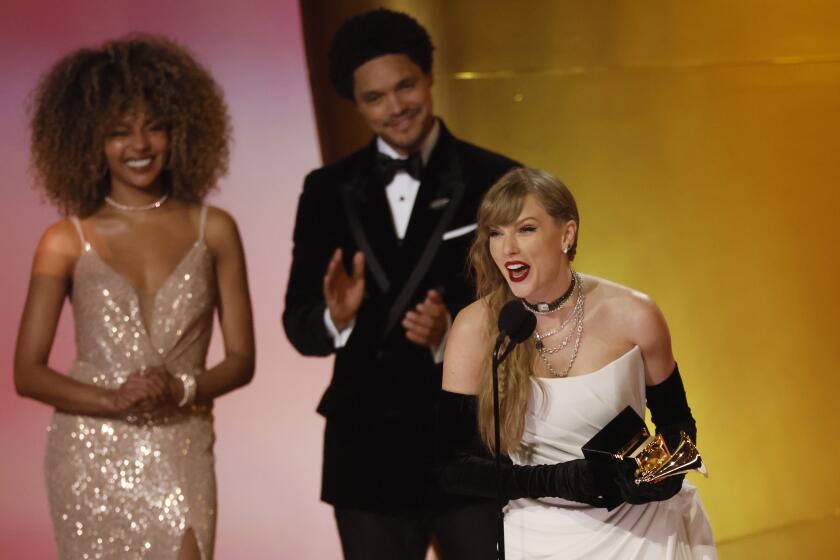It’s a Living History of the Newport Jazz Festival
- Share via
The Newport Jazz Festival, in its salad years, was among the music’s great glories. Surrounded by sun-dappled waters at the confluence of Narragansett Bay and the Atlantic Ocean, the annual summer events provided some of the genre’s most defining moments via performances by legendary figures ranging from Duke Ellington and Thelonious Monk to Miles Davis and Charles Mingus.
The Newport Jazz 2002 ensemble that performed at UCLA’s Royce Hall Friday night wasn’t lacking in all-star participants, either, with a lineup that included trumpeter Terence Blanchard, saxophonists Joe Lovano and Justo Almario, guitarist Howard Alden, pianist Cedar Walton, bassist Peter Washington and drummer Idris Muhammad.
Presumably assembled to embrace a range of styles--the Cuban roots of Almario, the swing elements of Laden, the bebop of Blanchard, Lovano and Walton--the group served as a kind of living metaphor representing the five decades of Newport Jazz Festival history.
There were many moments in which that history came vividly to life. Blanchard’s passionate rendering of “Goodbye” was a particularly poignant example, one of several solos illuminated by the vocalized qualities of his half-valve trumpet work and the fiery intensity of his rhythmic phrasing.
Almario and Lovano, occasionally tossing phrases back and forth in classic, tenor saxophone battle style, were equally impressive, with Lovano’s too infrequently heard lyrical side also surfacing in “A Portrait of Jenny,” and Almario bringing the capacity crowd to life with his own “Salvation Army.” Walton, as he always does, displayed his unique capacity to bring structure, cohesion and a rich harmonic inventiveness to his soloing--vividly so in a medley of Billy Strayhorn tunes.
Although Alden’s solo style was somewhat out of sync with the other player, his blues-driven solos added intriguing moments of contrast. What separated the evening from the glory days of Newport, however, was the generally uneven quality of the rhythm section.
The versatile Muhammad’s eclectic career has taken him from Sam Cook and Roberta Flack to John Scofield and Sonny Rollins, but on this evening, at least, he rarely managed to find a propulsive rhythmic pocket. It was the one element in this otherwise appealing program that distinctly separated it from the early, hard-swinging, glory days of the original Newport Festival.
More to Read
The biggest entertainment stories
Get our big stories about Hollywood, film, television, music, arts, culture and more right in your inbox as soon as they publish.
You may occasionally receive promotional content from the Los Angeles Times.










